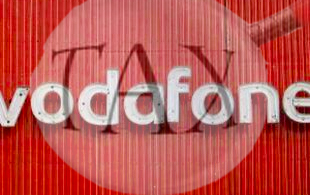
New Delhi, Jan 29: In a clear signal to global investors that India has moved to a fair and transparent tax regime, the government on Wednesday revoked the former United Progressive Alliance (UPA) government’s decision to challenge in the Supreme Court a Bombay High Court ruling in favour of Vodafone.
The decision not only gave the world’s second largest telecom firm a relief of Rs 3,200 crore in a tax dispute case with the government, but also sought to harbour hopes among 20 such multi-national companies facing similar disputes in India.
The Cabinet decision came just two days after Prime Minister Narendra Modi in the presence of US President Barack Obama assured the world investment community that India was moving fast on removing all ambiguities in its tax regime.
“This fruitless litigation could have been avoided by the previous government. We are only correcting the legacies of the past,” Telecom Minister Ravi Shankar Prasad told reporters after the Cabinet meeting.
In a 2010 case, the Income Tax (I-T) department had asked Vodafone to pay additional tax of Rs 3,200 crore stating that the telecom firm had undervalued its shares in its Pune BPO, Vodafone India Services, while transferring them to the parent company in Britain.
The tax authorities later issued a show cause notice against the company in January 2014 and passed an order asking it to pay the tax.
Vodafone then moved the Bombay High Court against the I-T department decision. The court said in its order in October 2014 that the UK-based telecom firm was not liable to pay income tax demanded in the case relating to transfer pricing.
Vodafone, the largest corporate investor in India, is facing several other tax disputes in the country.
“Investors’ confidence has been shaken in the past because of the very fluctuating tax policy. The government wants to convey a clear message to investors world over that this is a government where the decisions will be fair, transparent and within the four corners of the law,” the telecom minister said.
Reacting to the decision, Vodafone’s counsel said: “The government’s change of heart is a good massage to global investors”. But he maintained that the people were actually waiting to see a change on the ground and a change in the “mind set” of the tax department.
After talking to hundreds of CEOs at the India-US Business Summit two days ago, Finance Minister Arun Jaitley had said that he and the prime minister took pains to explain it to investors that India was seriously working on a investor-friendly tax administration.
*Decision not to file appeal taken at the highest level following advice by Attorney General Mukul Rohatgi
*Will help other MNCs like Dutch oil major Shell
*Shell too had got a favourable judgment in a transfer pricing case from Bombay HC
*Transfer pricing is the practice of arm’s length pricing for transactions between group companies based in different countries
*Decision to bring greater clarity and predictability for taxpayers and tax authorities





Comments
Add new comment